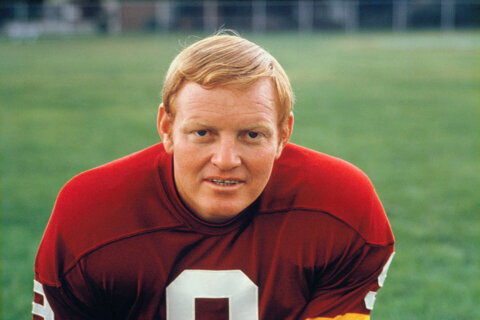WASHINGTON — A story straight out of Hollywood has graced the Super Bowl 50 stage. Despite running into legal trouble in college, a highly-touted quarterback shines enough on the gridiron to get selected first overall in the NFL Draft and rise to superstardom, only to come under scrutiny once more as a pro for off-the-field issues.
This, of course, is the story of Peyton Manning.
Herein lies the problem: You probably thought I was talking about Cam Newton. Yes, he had his name attached to some scandals in college involving cheating at Florida and allegations of taking money to go to Auburn. Those alleged missteps had people questioning his integrity leading up to the 2011 NFL Draft and beyond. The reality, though, is that Cam’s worst sin since donning the Carolina blue is offending some oversensitive woman in Tennessee with his end zone celebrations.
Manning, on the other hand, has a more checkered past. Many have forgotten his sex scandal that originated in college and extended well into his NFL career. (Here’s a detailed recap in case you missed it.) Then came the Al Jazeera report in December, detailing Manning’s alleged use of HGH.
Yet the popular topic of debate in the NFL last week wasn’t “Is Peyton football’s version of Barry Bonds,” but rather “Why do people hate Cam?”
(Blatant digression: This notion that Cam Newton is hated is a totally contrived media creation designed to fill space. The fact is, Cam didn’t matter in the NFL’s big picture until this season. He’s played mostly on losing teams and for a franchise that’s six years younger than he is. You have to be either really good or really bad to be polarizing, and Cam has been neither until this season.)
It’s hard to ignore the possibility that race plays a role in this inconsistency. Before you jump on me for playing the race card (and I would reply with the words of comedian Paul Mooney: “how the hell did it even get in the deck?”), consider the fact that Cam has been taking heat all season for his celebrations, while white athletes like Rob Gronkowski and Travis Kelce (whose end zone shimmy made ESPN’s Robert Flores a cult hero) are spared similar scrutiny for far more histrionics.
Personally, I believe it has more to do with Manning being an established media darling and revered pitchman. He’s a made man because sportswriters and analysts would take no joy in taking down a man they’ve spent years propping up as one of the game’s best all around guys. Peyton is personable, he’s well spoken, and he’s wildly successful. Think back to Michael Jordan — did anyone really want to totally blow the lid off his issues with gambling and infidelity during his playing career? Anything we actually heard about was just the tip of the iceberg.
If placed side-by-side in a vacuum, I think any reasonable and objective person would say Peyton’s “rap sheet” trumps Cam’s in terms of severity and overall impact to society and his sport. Yet the widely proclaimed “feel good story” seems to involve Manning hoisting a second Lombardi Trophy rather than Newton completing one of the greatest single seasons in NFL history.
I think Cam made a solid point last week when he described himself as “an African-American quarterback that may scare a lot of people because they haven’t seen nothing they can compare me to.” At 6-foot-5 and close to 250 pounds, he’s the closest thing there is to a Goliath at QB. And nobody roots for Goliath, especially when he’s pitted against football’s version of Rocky: The old, broken veteran dragging himself to the finish line.
But everyone loves a winner. Perhaps a victory on Sunday — and an extended run of success that involves multiple Super Bowls — will earn Cam the same Teflon reputation Peyton currently enjoys.
Better yet, such a scenario would afford us the opportunity to see if the imbalance between Manning’s narrative and Newton’s is racially driven or simply a product of media favoritism.








